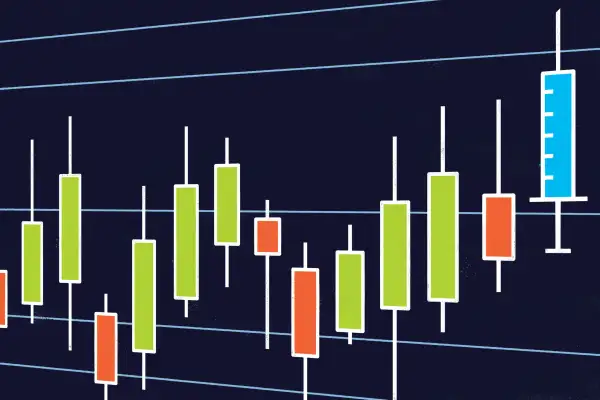Pharmaceutical Stocks May Seem Like a No-Brainer Right Now — But There Are Big Risks for Investors
Money is not a client of any investment adviser featured on this page. The information provided on this page is for educational purposes only and is not intended as investment advice. Money does not offer advisory services.

As the old saying goes, the sign of a hot market is when cabbies start giving out stock tips. The 2020 version might be an Uber driver whispering about COVID-19 vaccines headed into clinical trials.
After all, we live in a coronavirus world now, and everyone is desperate for a fix that will get things back to normal. With constant health care coverage on TV, it’s hardly surprising that Big Pharma is suddenly front-of-mind for many investors, as well.
Not least because the sector’s recent performance has been so solid. After many years of being moribund, pharma has emerged as a powerhouse over the past 12 months: The S&P Pharmaceuticals ETF has returned roughly 18% over that time period, besting the S&P 500 by over 8 percentage points and clobbering the Dow by 19 points.
That might be part of the reason for the sector’s $5.8 billion in year-to-date fund inflows, according to analytics firm Refinitiv Lipper.
“For years there have been real headwinds for the sector, with concerns about drug prices and political response,” says Andy Acker, portfolio manager for Janus Henderson’s Global Life Sciences Fund.
“So a period of incredibly high innovation went ignored. Now with the COVID-19 pandemic, companies are developing diagnostics, treatments and vaccines to get the world out of this catastrophe. There’s a whole new appreciation for the sector.”
Beyond just the coronavirus, the reasons for the pharma revival are multiple, according to research firm Morningstar's recent Annual Drug Pipeline Report: Strong menus of drugs in development, wide moats (barriers to entry for new rivals), and attractive valuations for some prominent names.
Among Morningstar’s top picks for offering products and pipelines at a reasonable share price: Merck, Roche and Pfizer.
And perhaps, after years of being overlooked, the sector was simply overdue for a jolt of energy. After all, the five-year annual average returns for the sector, looking at the S&P Pharmaceuticals Select Industry Index, is a sickly negative 6.75%.
Also in the sector’s favor is that health care is generally seen as a defensive bet, which appeals in uncertain times like these. Throw in some performance chasers – investors who tend to pile into hot sectors, figuring that recent gains will continue -- and that makes for some strong tailwinds.
How to research drug stocks
That being said, the smart investor is always quick to admit what he or she doesn’t know. In this case, the fact is that neither you nor I are suddenly pharmaceutical experts who know exactly how the COVID-19 vaccine situation is going to play out.
So while we may have a general outline of what’s in the works – firms like Moderna, AstraZeneca, and Pfizer all have promising vaccines being tested – any individual bet at this point is going to be largely conjecture. (The World Health Organization’s recent roundup of all potential vaccine candidates: https://www.who.int/publications/m/item/draft-landscape-of-covid-19-candidate-vaccines.)
Also keep in mind that if any company does hit the jackpot with a safe and successful vaccine, that doesn’t automatically mean rivers of cash. Governmental and public pressures are likely to make sure the product is provided at low cost and won’t be an instant earnings bonanza for anyone.
“Someone may get lucky with an individual investment based on the development of a drug, but it’s just that – luck,” warns Larry Luxenberg, a financial planner in New City, N.Y.
“If you do get lucky, you’ll convince yourself that it’s skill. But the odds are so long, drug development is so chancy and takes many years, and it’s highly dependent on what competitors are doing, as well as factors like the regulatory climate. Only a diversified portfolio makes sense for an investor, as opposed to a speculator.”
Health stock funds
For the vast majority of investors interested in a health care theme, a fund with a large basket of holdings is the wiser option. In addition to the Janus Henderson offering, top-rated funds in the space include Fidelity Advisor Health Care, T. Rowe Price Health Sciences, and BlackRock Health Sciences Opportunities.
One thing is certain: For a sector that for such a long time was the nerdy kid lunching alone in the corner, it’s nice to finally be invited to the popular table.
“Even though the sector has been outperforming this year, we still think many companies are undervalued,” says Janus Henderson’s Acker, who is particularly keen on holdings like BioMarin Pharmaceutical, Sarepta Therapeutics and Akero Therapeutics.
“It’s still trading at a substantial discount to the market -- and innovation is creating a lot of excitement.”
More from Money:
Value Stocks Have Been Lagging Growth Stocks for Years. Here's Why You Should Own Them Anyway